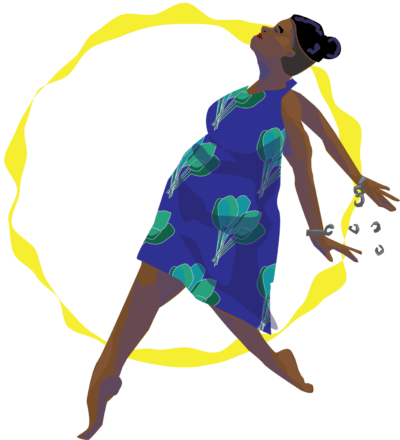Our Vision

Current State of Play
In the U.S., policing and criminal justice practices tend to reinforce societal inequity by targeting communities that are already marginalized and oppressed. In particular, Black people, non-Black people of color, queer and trans people, people who use drugs, sex workers and immigrants are disproportionately targeted by law enforcement and too often face violent interactions with police. These same communities are those most affected by the U.S. HIV epidemic. Interactions with the criminal justice system can be especially dangerous for marginalized communities – causing risk of loss of employment, income, parental rights, isolation, dehumanization and interruptions in health care – and too frequently, even death at the hands of the State. Mass incarceration disrupts communities and families.
PLHIV are specifically targeted by HIV criminalization laws, which punish us for behavior that would otherwise be legal were it not for our HIV positive status, including sexual intimacy, spitting and donating organs. Other laws that target communities already vulnerable to violence and HIV include those that prosecute people for sex work or for using drugs. Under these laws, people become criminals for carrying condoms or clean needles, for using drugs or for supporting themselves with survival sex. Rather than protecting anyone, these laws create a deadly climate for sex workers and people who use drugs by directly punishing prevention measures that people may use to reduce risk, and creating barriers to people seeking help when they are in danger.
On top of existing prejudices that may already exist due to racism, homophobia, transphobia, misogyny and HIV-related stigma, the collateral consequences of surviving criminalization may have a lifelong impact. Survivors can be barred from accessing housing, employment, health care, and essential safety net programs, and may be separated from their families, loved ones and communities. Immigrant survivors may be vulnerable to revocation of their residency permission, detention and deportation. Criminalization survivors, particularly women, are also vulnerable to abuse, violence, and exploitation. Some states permanently prohibit survivors who have been convicted of felonies from voting, severing them from a fundamental civil right. As criminal justice system survivors are often part of marginalized communities, these policies only serve to silence and disenfranchise them in policy development.
At the federal level, we support:
At the federal level, we oppose:
At the state/local levels, we support:
At the state/local levels, we oppose:
Resources
- HIV Criminalization
- PWN-USA – HIV Criminalization Know Your Rights Guide, HIV Criminalization Fact Sheet
- Sero Project – HIV Criminalization Resource Bank
- Center for HIV Law & Policy – HIV Criminalization in the United States: A Sourcebook on State and Federal HIV Criminal Law and Practice
- HIV Justice Worldwide – Making Media Work for HIV Justice
- Violence & Criminalization
- Free Marissa Alexander Fact Sheet: Domestic Violence & Criminalization
- Mass Incarceration
- PWN-USA- Harm Reduction Factsheet
- The Sentencing Project Fact Sheet- Trends in US Corrections
- Drug Policy Alliance Fact Sheet- Mass Incarceration
- Prison Policy Initiative – Mass Incarceration-The Whole Pie 2018
- Targeted Policing
- Sylvia Rivera Law Project Fact Sheet – Policing of Low Income People and of Trans and Gender Non-Conforming People
- National Immigration Law Center – Immigration Enforcement Resources
- DecrimNOW – Why Decriminalize Sex Work?
- Advocacy Tools
- Center for HIV Law & Policy and National LGBT Task Force
Take Action!
- Support reform of HIV criminalization laws by signing up on PWN’s website to get connected with one of our state advocacy campaigns or to learn about starting one of your own.
- Watch PWN’s HIV First Responder Training Series to learn how to support PLHIV in your states who have been criminalized because of their status.
- HIV Criminalization: Laws, Facts, & Policy
- Activating Support Networks
- Combatting Media Stigma
- Navigating The Criminal Justice System
- Talk to your legislators about the importance of the decriminalization of HIV, of sex work (and related offenses), and syringe possession.
- Talk to your legislators about eliminating felony disenfranchisement laws and money bail systems.
- Join the National Bailout Movement to help end pre-trial detention and mass incarceration
- Support the efforts of organizations like the Drug Policy Alliance and the Harm Reduction Coalition to address consequences of the War on Drugs and create harm reduction practices that benefit people who use drugs, including support for safe injection sites and syringe access programs in your cities.
- Support the efforts of organizations like the Desiree Alliance and The Sex Workers Outreach Project to protect and advance the rights of people who do sex work.
- Organize support campaigns for survivors of domestic violence who are criminalized.
- Support local and state reentry programs that help formerly incarcerated people transition back into their communities by providing employment, housing, and mental health services.
Advocate for/ maintain local and state sanctuary city laws to restrict federal policing of immigrant communities where you live.


